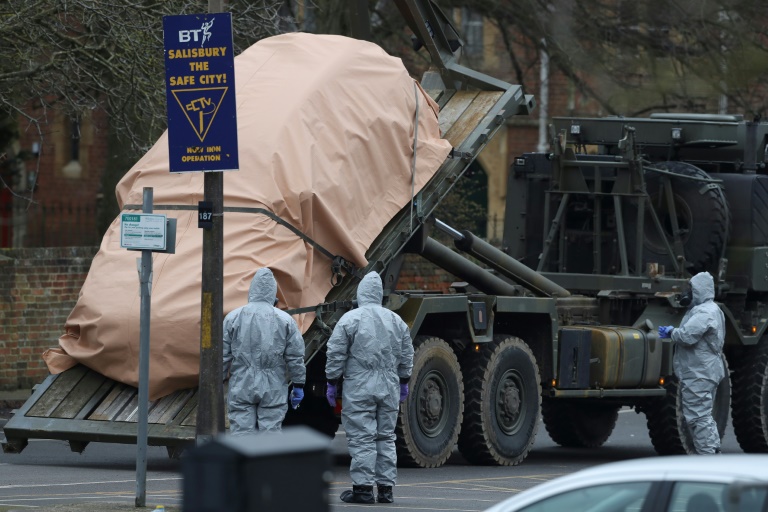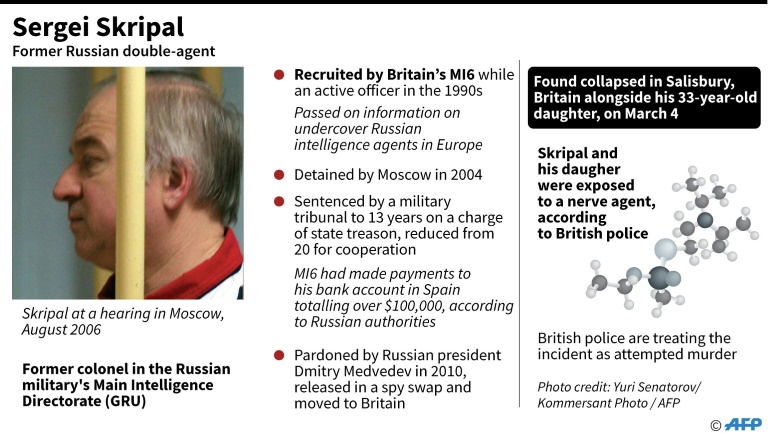Moscow on Monday accused Britain of trying to "undermine trust" ahead of the football World Cup to be held in Russia, after Prime Minister Theresa May called it "highly likely" that Russia was behind the poisoning of a former spy on British soil.
“We have repeatedly warned: before the FIFA World Cup starts in Russia (this summer), Western media would launch a full-scale campaign with the aim of discrediting Russia and undermine trust in it as the host of this sporting event,” the ministry said.
“As we assumed, the English have been especially active, unable to forgive Russia that it was our country that was chosen in an honest contest to host the 2018 tournament,” it said in the statement on its official Facebook page.
The poisoning of former double agent Sergei Skripal along with his daughter was being used as a pretext to call for a boycott despite an investigation “not only not yet being completed but, in fact, not yet begun,” it said.
May on Monday pointed the finger at Russia for trying to kill Skripal, who sold secrets to Britain and later moved there in a 2010 spy swap.

With troops in protective gear on Salisbury’s streets and hundreds of people urged to wash their clothes as a precaution, a sense of unease has spread through the town
But she stopped short of announcing retaliatory measures against Moscow and instead gave the Kremlin until the end of Tuesday to explain a nerve agents programme allegedly involved in the Skripal case.
The British prime minister had already suggested a boycott of the World Cup by officials and dignitaries.
Russian foreign ministry spokeswoman Maria Zakharova said the allegations were part of an “information and political campaign based on provocation”, in comments carried by news agencies.
“This is a circus show in the British parliament,” she said.
“Rather than think up new fairy tales, maybe someone in the kingdom could explain how the previous ones ended up — about Litvinenko, Berezovsky, Perepilichny and many others who have mysteriously died on British soil,” Zakharova added.
Former spy Alexander Litvinenko, oligarch Boris Berezovsky and whistleblower Alexander Perepilichny all died in the UK in recent years.
The Kremlin has long rejected any involvement in their deaths, despite a British judge concluding Russian President Vladimir Putin likely approved Litvinenko’s killing.
– ‘No evidence’ –
Leonid Slutsky, the head of the Duma’s foreign affairs committee, said London was “following the latest Western trends” in its investigation into the former spy’s poisoning.
“There is no evidence, but Russia is to blame for everything,” he said.
The investigation could be aimed at influencing Russia’s presidential election at the weekend, he told agencies.
Andrei Lugovoi, a prime suspect in Litvinenko’s 2006 killing who has never been extradited and is now a member of the Russian parliament, called May’s speech “irresponsible”.

What you need to know about former Russian double agent Sergei Skripal
“The hasty statements of Theresa May, especially in connection to the nerve agent, allegedly made in Russia, are irresponsible to say the least,” he told the Interfax news agency.
“Soon everything will be classified, as this is the only way to make sure the public has no access to the case materials, as was the case in the Litvinenko affair,” he said.






